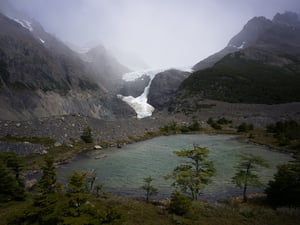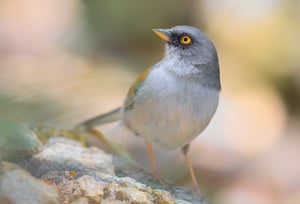One of the coolest things about working at Photography Life is being around a bunch of people who are really passionate about their photography! And although gear, reviews, and just plain maintaining a small website sometimes takes more time than photography itself, I thought I'd look back at our 2025...
Composition and Art Category Archive
The Role of Negative Space in Nature Photography
Wildlife photographers often use long telephoto lenses to “fill the frame,” but there’s more to capturing a great photo. Previously, I wrote about photographing wildlife through animalscapes. Now, let’s discuss the use of negative space – an often underused technique that deserves more attention.
Choosing a Subject in Wildlife Photography
Just recently, I have written two articles about finding good subjects where some photographers may not dare to look: photographing stunning brown birds that some people think are dull, and bringing your camera out in otherwise ugly locations. In wildlife photography, what I love is that each of the millions...
Dealing with Interesting Scenes that Are Hard to Photograph
There is a bit of a disconnect between how scenes look in person and whether or not they lead to good photos. And it goes in both directions - at times, an "ordinary" scene will make for amazing photos, but other times, a very interesting place may be hard to...
The Subtle Art of Blocking in Landscape Photography
A fundamental idea in composition is that you should exclude anything from your photo that doesn’t add to your message. An errant branch, footprints on the ground, whatever harms your story – leave them out of the composition, and you’ll get a stronger photo. But… what if you can’t exclude them completely?
Five Compositional Ideas for Bird Photography
Some principles apply to every genre of photography, including many of the creative and compositional techniques that you use. However, I find that each genre has its own nuances and differences. Today, I'd like to share five compositional techniques that are especially relevant in bird photography. These aren't rules - instead,...
Landscape Photography on a Cloudless Day
Photographers may be some of the only people with a negative opinion of blue skies! But who can blame us? Harsh sunlight doesn’t complement a lot of subjects very well – if anything, just the opposite – and an empty, blue expanse usually doesn’t add much interest to the top of a landscape photo.
Small Adjustments Can Lead to Big Changes in a Photo
In photography, you compose shots by moving your camera to a physical position in space and time. That's obvious. But what isn't so obvious is that very slight changes in space and time can substantially alter a composition. As a wildlife photographer, I know it's tempting to take shots immediately...
Searching for Fractal Beauty in Landscape Photography
There are two impossible questions I like to ask myself as landscape photographer. Although they’ll never have perfect answers, the closer I try to get, the more I see my photos improve. They are: “What makes a good landscape?” and “What makes a good landscape photo?”
Improving Your Photography by Analyzing Your Year
Out of all the pursuits I've tried, I think wildlife photography has got to be one of the most difficult - and I'm including my doctorate in pure mathematics on that list. That's why I like to take some time at the end of the year and go through my...









